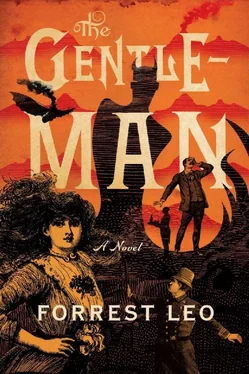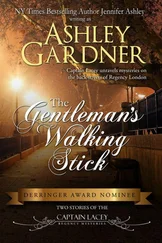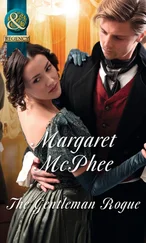‘Oh, I’m so sorry — it’s a word of Thomasina’s; I believe she stole it from the French or something. She uses it to mean a little mechanical device.’
‘“Gadget,”’ I say again. ‘It is a good word. I believe I shall use it in a poem someday.’
‘That will make Thomasina monstrously happy!’ says Will Kensington. ‘Algernon, too.’
‘So you and your sister built a flying machine,’ I say. ‘Is it a balloon, or what?’
‘Not at all! You can’t steer a balloon! It is much similar to— Well, you are familiar with da Vinci’s devices, no doubt?’
‘No,’ I say. I am not well acquainted with art in general — words have been my domain, not pictures. They seem to me to have much greater value on the whole. Whoever said that a picture is worth a thousand words has clearly never read good words.
‘Well, da Vinci drew all sorts of ingenious gadgets, many of them for flight,’ says the boy. ‘Not balloons at all, but things more like mechanical birds. The trouble was, none of his flying machines quite worked. They were all human-powered, but you see, humans don’t actually have the strength to make them fly.’
‘So you substituted steam for humans?’ I ask, beginning to catch on. It seems incredible, but after the events of the last twenty-four hours I am prepared to accept anything.
‘Exactly!’
‘And it worked?’
He looks a little embarrassed again, and chooses his words carefully: ‘I hope that one day it will work better.’
‘So you came to London to test this machine?’
‘Oh no, I flew from York.’*
‘You flew from York to London?’
‘Yes,’ he says without a trace of pride. ‘I had hoped to make it to Paris, but something went wrong and I crashed in a field not far outside of town.’
‘You flew from York!’ I exclaim. ‘That’s astonishing, Kensington!’
‘No, no,’ he says modestly, ‘it’s really not. It was rather— It was rather an ignominious end. I’m afraid my poor Cirrus —that’s her name — is in pretty awful shape.’
‘Where is it?’ I ask.
‘In a barn outside of town.’
‘Why haven’t I heard about this? Tompkins, did you know anything about it?’
‘Hmm?’ says Tompkins. He has reopened his book and is lost again.
‘I prefer not to get the press involved,’ says Will Kensington. ‘They have that beastly habit we spoke of earlier.’
‘Of course, of course,’ I say. ‘Beastly.’ I am in my head already halfway through the composition of a paean to this young aeronaut.* He has quite captured my imagination.
‘But you were speaking of your wife?’ he says. From his tone I can tell he has been wishing to mention it for some time, but held himself back from good breeding.
‘Indeed,’ I say. ‘My wife.’
‘I didn’t mean to overhear. But I did, and it can’t be helped now, and I believe I should die of curiosity if I kept silent. Did you really sell her to the Devil?’
‘I did,’ I sigh. ‘I am not proud of it. But what was it you were saying earlier — that she hadn’t the heart to tell me she loved me?
‘Yes, yes, exactly!’ he says. ‘If I may offer an observation…?’ I nod. ‘Well,’ he goes on, ‘would you give voice to a love you knew to be unreturned?’
‘But I did love her!’ I cry. It is a strange thing that I am sitting in Tompkins’s shop discussing my most intimate problems with a complete stranger; but somehow that makes it easier. I believe what I have needed all along is someone quite unacquainted with the whole issue.
‘If you loved her,’ says the young inventor, ‘why didn’t you tell her so?’
‘Because— Because— I don’t know! Because she seemed so cold! How could I tell her I loved her when she so obviously didn’t care a jot for me!’
‘But you mentioned some letters — proof that she indeed did love you.’*
‘Yes,’ I say, at a loss. I am furious. Not with Will Kensington, who is doing his best to help me navigate a frightfully complicated situation, but with the situation itself. It just doesn’t seem fair . I tell him so.
‘No,’ he says, ‘it’s absolutely not fair. But isn’t that what’s so wonderful about love? I mean, I don’t really know because I’ve never been in love — but that’s what I’d imagine, from hearing about it. My brother Bernard is often in love, and he says that’s what makes it such a grand thing — that you never really know what anyone else is thinking and so all you can do is trust that when they say they love you, they really do.’
‘But she didn’t say she loved me!’
‘She married you,’ he points out.
‘Damn it, Kensington, don’t turn sophist on me.’*
‘I’m sorry, sir.’
‘No, no,’ I say, at once sorry myself, ‘I didn’t mean to aim that at you. I’m just— I’m rather down lately. I apologise.’
‘I understand,’ he says.
We stare at the fire in moody silence for a while. From time to time Tompkins turns a page of his book. The feline stalks me.
‘Kensington,’ I say eventually, ‘I’m glad I’ve met you.’
‘And I you, sir,’ he replies. ‘Algernon will be quite jealous.’
The clock on the mantel strikes, and my stomach plummets. I rise abruptly. ‘I need to go,’ I say. ‘I intend to see you again, Kensington.’
‘I’d like that, sir,’ he says.
‘Goodbye, Tompkins,’ I say, setting down my teacup.
‘Hmm,’ he says, and turns the page. From his engrossed demeanour and the subtle way he hides the title of the book, I gather that he is reading about Elizabeth Bennet. She is a great favourite of his.
I shoulder open the door and vanish into the fog.
I walk blindly. My mind is stormy, but my steady feet take me home. I cannot tell whether or not I am satisfied with my sortie. I am certainly glad to have encountered Will Kensington — he may be the most poetical person I have ever met. I would very much like to continue our acquaintance. I do not remember the last time I felt the stirrings of friendship, and now I have felt them twice within twenty-four hours. Perhaps the day is not as dreadful as I had imagined.
I reach Pocklington Place, let myself back in, tiptoe up the stairs, creep into my room, and flop down on my bed which I still do not like. I still do not know what to do. I still do not know if I hate my wife or not.
How is it that she could have loved me? Or (this occurs to me abruptly and unpleasantly) is this all some elaborate hoax — is Ashley Lancaster tormenting me deliberately? I do not think it possible; I have known him only an afternoon, but I do not believe he is capable of subtlety.* No, I am forced to believe that Lancaster believes his intelligence is sound. If this is the case, then—
Then I am a cad. Worse than a cad. But how can it be true? I do not believe it. During the last six months we have said barely six words to each other. She cannot love me. I could barely tolerate me! I do not believe it is possible that another human could have loved me.
But if she did. If, defying reason, sense, and all wisdom, if Vivien truly loved me, then I am a lost soul.
I have deciphered the feeling in my chest. It is passion. Passion such as I have never felt before. Passion of the sort one reads about in poems, but such as I have never myself been able to write. Passion of the old-fashioned sort, passion true to its roots — from the Latin patior, to suffer. It is not what might be called a pleasant feeling. It is rather as though my skin has been flayed from my bones and my entrails have been used as boot laces by a troop of soldiers walking through the mud in the rain at midnight. It is a horrible experience.
Читать дальше












